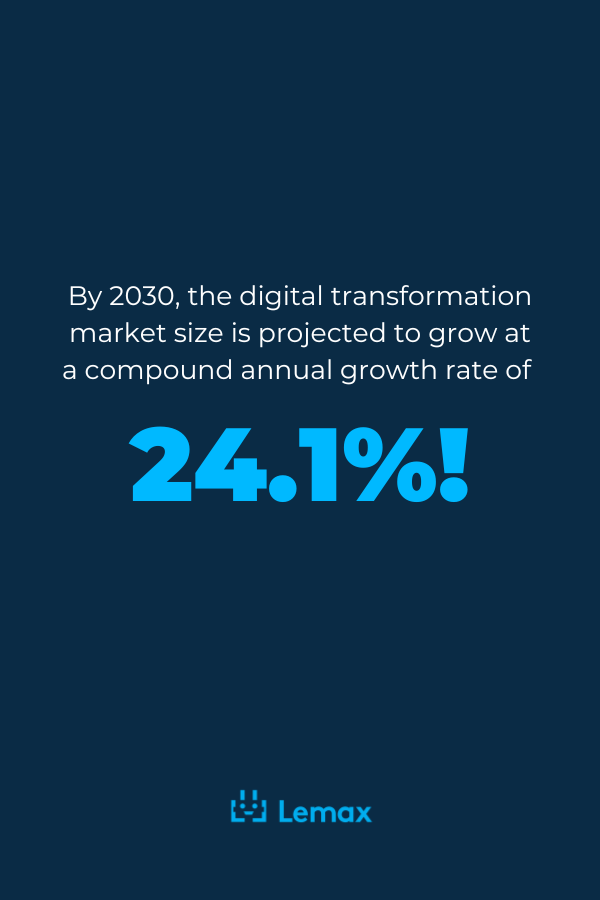The travel industry has been increasingly adopting technology to enhance various aspects of the whole create, sell, and operate process.
It takes 2 hours on average for a travel agent to issue a quotation to a customer. That means that one travel agent can produce only up to 3,5 quotations a day, while there are some easily automated repetitive steps in this process where technology can step in.
Digital transformation is the pivotal process of leveraging digital technologies to fundamentally change how businesses operate and deliver value to their customers and partners. This shift of business towards digitalization transcends traditional roles like sales, marketing, and customer service. Rather, it entails a reorientation that puts customers in the very center.
The Future of Travel is Digital
According to Markets And Markets, the digital transformation market size is projected to grow at a compound annual growth rate of 24.1%, from $695.5 billion in 2023 to $3,144.9 billion in 2030.
Nico Costerus, our client’s Expat Explore’s Head of Finance, points out that, with Lemax, they will now have a fully integrated platform instead of having their product team work in one and our sales and customer service teams in another:
“Our whole product catalog was done manually in Excel – that will also change. All the information will now be integrated into one place and easily reachable to every team member. This will also help in the decision-making process. Data integrity with a system like Lemax will be something of great value for us.”

With different resource allocations, travel companies can focus more on the ‘next generation of travelers’ by automating repetitive work and freeing up their time to be focused on the customer and enhancing customer experience. To have a chat or two about travel tech & digital transformation, book a meeting with us at this year’s TTS, or request a demo!